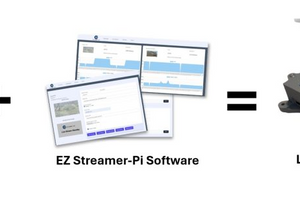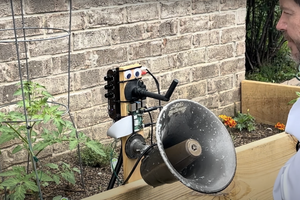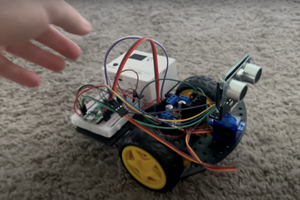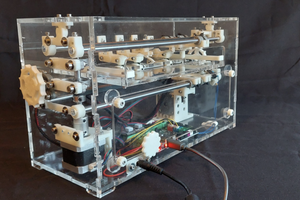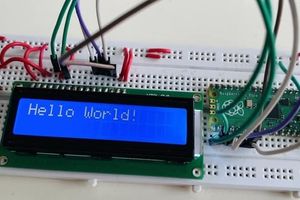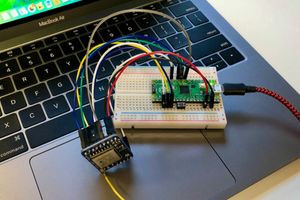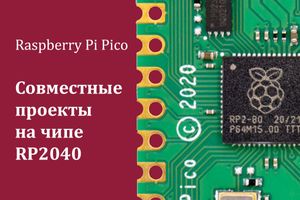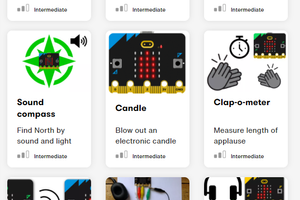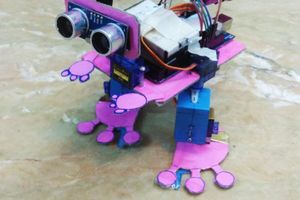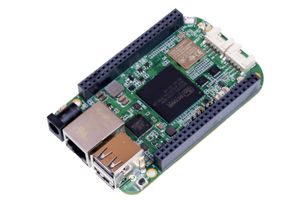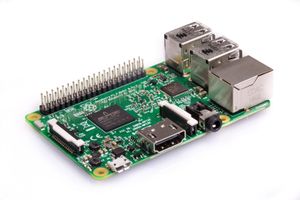Raspberry Pi AI Kit available now at $70
If you’ve ever wanted to experiment with the world of neural networks, artificial intelligence and machine learning on your Raspberry Pi 5, we have the perfect product for you: the Raspberry Pi AI Kit. Developed in collaboration with Hailo, the AI Kit offers an accessible way to integrate local, high-performance, power-efficient inferencing into a wide variety of applications. It’s available today from our network of Raspberry Pi Approved Resellers, priced at just $70.

The Raspberry Pi AI Kit comprises our M.2 HAT+ preassembled with a Hailo-8L AI accelerator module. Installed on a Raspberry Pi 5, the AI Kit allows you to rapidly build complex AI vision applications, running in real time, with low latency and low power requirements. State-of-the-art neural networks for object detection, semantic and instance segmentation, pose estimation, and facial landmarking (to name just a few) run entirely on the Hailo-8L co-processor, leaving the Raspberry Pi 5 CPU free to perform other tasks.
Key features of the Raspberry Pi AI Kit include:
- 13 tera-operations per second (TOPS) of inferencing performance
- Single-lane PCIe 3.0 connection running at 8Gbps
- Full integration with the Raspberry Pi image software subsystem
- Compatibility with first-party or third-party cameras
- Efficient scheduling of the accelerator hardware: run multiple neural networks on a single camera, or single/multiple neural networks with two cameras concurrently

Hailo has created an extensive model zoo, where users can find a wide variety of pre-trained neural network models ready to deploy and optimised to run on the AI Kit.
The software
A significant hurdle in creating real-world AI-based vision applications is the software complexity of integrating the camera subsystem with the AI framework. We have worked hard to simplify this as much as possible. Our rpicam-apps suite of camera applications now has a post-processing template for integrating neural network inferencing running real-time in the camera pipeline. By using the pre-installed Hailo Tappas post-processing libraries, we are able to create advanced AI-based applications in only a few hundred lines of C++ code. Similar levels of integration into our Picamera2 framework will follow soon.

The software installation steps are very simple. Install a few packages through apt, reboot, and you are ready to try out some of our AI demos in a matter of minutes. The full set of instructions can be found in our getting started guide. Here’s a preview of some of our demos that you can run through rpicam-apps:
With the Raspberry Pi AI Kit, you are not limited to using the Hailo-8L co-processor only in rpicam-apps or Picamera2. We also package an API integrated in the GStreamer framework and native Python or C/C++ applications. This also includes non-camera use cases, such as running inference on pre-recorded video files.
Further resources
Our documentation for the AI Kit is a great place to start.
For full technical specifications for the Hailo-8L AI accelerator module, visit Hailo’s product web page.
Hailo has created a set of advanced AI applications running on a Raspberry Pi 5. They also have a community forum for discussing topics specific to the Hailo-8L AI accelerator hardware and software tooling.


























